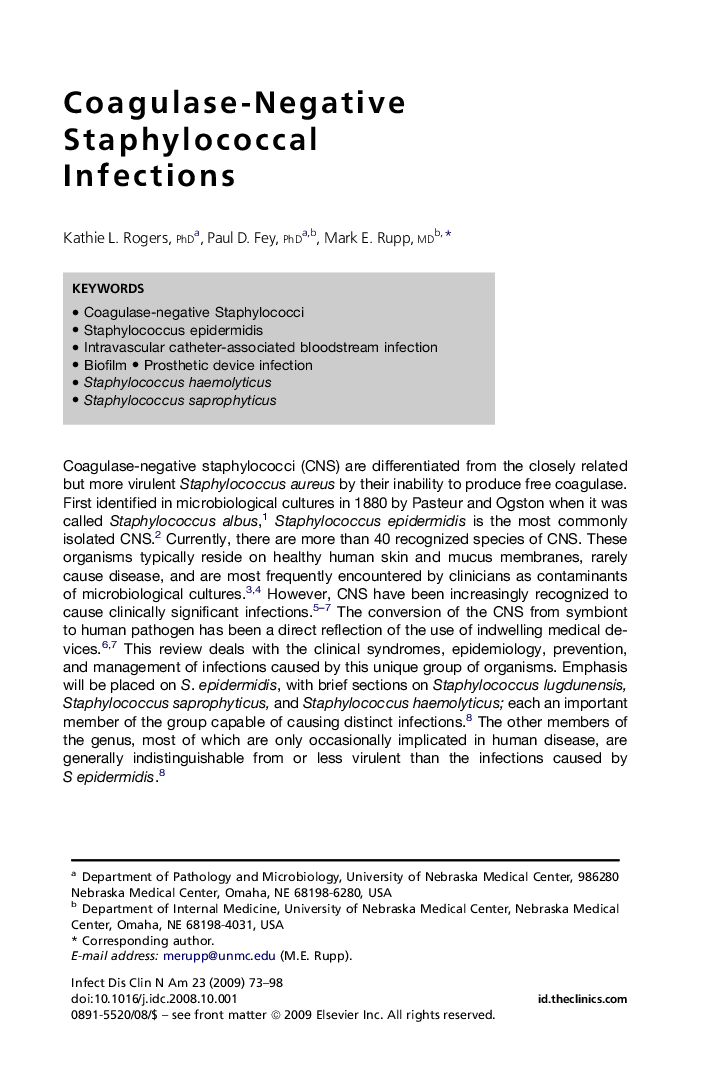| Article ID | Journal | Published Year | Pages | File Type |
|---|---|---|---|---|
| 3404570 | Infectious Disease Clinics of North America | 2009 | 26 Pages |
Coagulase-negative staphylococci (CNS) are differentiated from the closely related but more virulent Staphylococcus aureus by their inability to produce free coagulase. Currently, there are over 40 recognized species of CNS. These organisms typically reside on healthy human skin and mucus membranes, rarely cause disease, and are most frequently encountered by clinicians as contaminants of microbiological cultures. However, CNS have been increasingly recognized to cause clinically significant infections. The conversion of the CNS from symbiont to human pathogen has been a direct reflection of the use of indwelling medical devices. This article deals with the clinical syndromes, epidemiology, prevention, and management of infections caused by this unique group of organisms.
